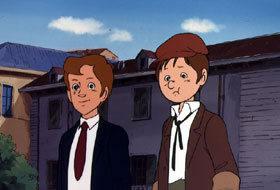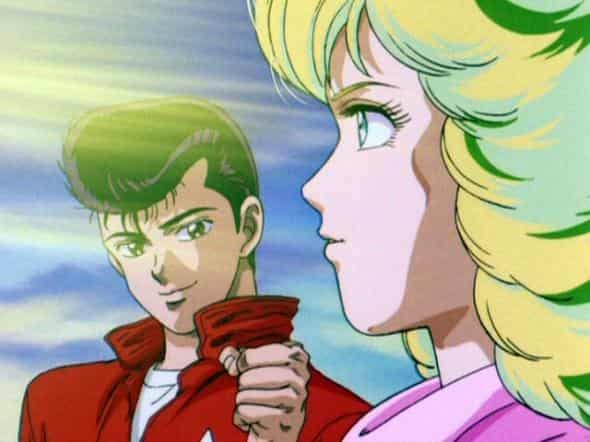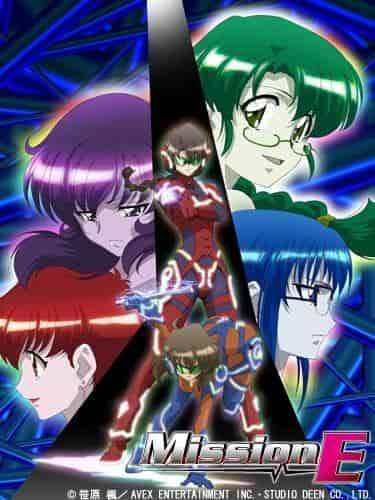A thorough evaluation of the moving and educational value of "Love School Cuore Monogatari"

The Story of School of Love, Cuore - A touching story of friendship and growthThe TV anime series "Cuore: The School of Love," which aired in 1981, is based on Edmond de Amicis' masterpiece novel "Cuore." This anime won the Child Welfare Culture Encouragement Award in 1981, and captivated many viewers with its moving story and deep human drama. Below, we will introduce detailed information and the appeal of this work. Overview"Cuore Monogatari: School of Love" is set in Turin, Italy at the end of the 19th century and tells the story of the growth and friendship of Enrico, a fourth-grader, and his friends. It was broadcast on the Mainichi Broadcasting System (TBS) from April 3 to September 25, 1981, for a total of 26 episodes, 30 minutes long every Friday from 7:00 to 7:30 p.m. storyEnrico advances to the fourth grade and meets his new teacher, Mrs. Belponi. At first, Enrico is afraid of the strict teacher, but he gradually comes to understand her deep intelligence and humanity, and grows together with his friends. Enrico writes his own stories in his diary, recording the daily life and special events with his friends. Commentary"School of Love Cuore Story" is an animated adaptation of the omnibus novel "Cuore" by Edmond de Amicis, the original author of "3000 Leagues in Search of Mother." It faithfully portrays the themes of human love, friendship, and growth contained in the original work, and has received high praise, including winning the 1981 Child Welfare Culture Encouragement Award. cast
Main Staff
subtitle
Related Titles
Theme songs and musicOpening Theme
Ending Theme
Appeal and evaluation of the work"Cuore Monogatari" is a touching story about friendship, growth, and human love. Through the daily lives of Enrico and his friends, viewers can feel their growth and change of heart. In particular, Mr. Belponi's perfect balance of strictness and kindness plays an important role in encouraging the children's growth. This work also firmly incorporates the essence of the original "Cuore" while allowing you to enjoy the visuals with the expressiveness that only anime can offer. The character designs and background art are beautiful, and the atmosphere of late 19th century Italy is realistically reproduced. Music is also an important element that enhances the appeal of the work. The music by Katsuhisa Hattori not only deepens the moving story, but also provides melodies that resonate with the hearts of viewers. The opening theme "Cuore Monogatari" and the ending theme "Shiroi Nikki" are masterpieces that were loved by many children at the time and are still fondly remembered today. Recommendation to viewers"Cuore: School of Love" is a work that can be enjoyed by a wide range of generations, from children to adults. It is especially recommended for those who like stories of friendship and growth. Also, those who have read the original work "Cuore" will be able to enjoy the interpretations and expressions that are unique to the anime. This work won the Child Welfare Culture Encouragement Award in 1981, and the content has a positive impact on children. It is also recommended to watch it with the whole family. Please experience the heartwarming story of Enrico and his friends. summary"Cuore: The School of Love" is a moving anime based on Edmond de Amicis' masterpiece "Cuore." With a story about friendship, growth, and human love, beautiful visuals, and heartwarming music, this work is enjoyable for both children and adults. Please watch it and experience the moving story. |
<<: The appeal and reviews of "Mechakko Dotakon": An anime experience not to be missed
>>: Review of "Dreaming Power": What is the appeal of Minna no Uta?
Recommend
Monster Hunter Youko review: A fascinating story and deep characters
Monster Hunter Youko: Welcome to a world of fanta...
The appeal and reviews of "Let's Go! Our Chim Chim-chan!!": An anime that can be enjoyed by both children and adults
Let's go! Our Chimchim-chan!! - Let's go!...
The latest episode of the popular TV animation "Black Clover" has been postponed and the old episodes will be re-broadcast
Due to the impact of the epidemic, the popular TV...
Double-breed horse racing! Enjoy the exciting new animation of "Gundam SEED" collaborating with horse racing
"Mobile Suit Gundam" collaborated with ...
A thorough review of "My Three Sisters"! A story of family ties and growth
"Our Three Sisters" - A heartwarming an...
The new visual image of the third season of the TV animation "Log Horizon" was released, and many characters appeared
Today (November 9), the second main visual image ...
'Copra' manga author Takeichi Terasawa dies of heart attack at 68
Japanese cartoonist Takeichi Terasawa, famous for...
Doraemon the Movie "Nobita's Chronicle of the Moon Exploration" Review: What is the appeal of the lunar adventure?
Doraemon the Movie "Nobita's Chronicle o...
The second chapter of "JoJo's Bizarre Adventure: Stone Ocean" will be broadcast on B station on September 1
The second episode of the TV animation "JoJo...
"Kidou Shinsengumi Moeyo Ken" review: A moving world woven with charming characters and a grand story
"Mobile Shinsengumi Moeyo Ken": A uniqu...
Lionsgate boss: Borderlands live-action movie "hit all the landmines"
Lionsgate CEO Jon Feltheimer recently talked abou...
The dark world of digitization! Psycho-Pass Season 3 OP released
Today (October 18), the official announced the TV...
The latest trailer of the new game-themed series "5 Seconds to Death Battle" will be officially launched on July 12
The TV animation version of the game-themed comic...
The screenwriter of "Doctor Strange 2" talks about inspiration: Indiana Jones wearing a cape
Doctor Strange 2 screenwriter Michael Waldron has...
Amazon to develop live-action Spider-Man Dark series
According to foreign media Variety, Amazon will s...









